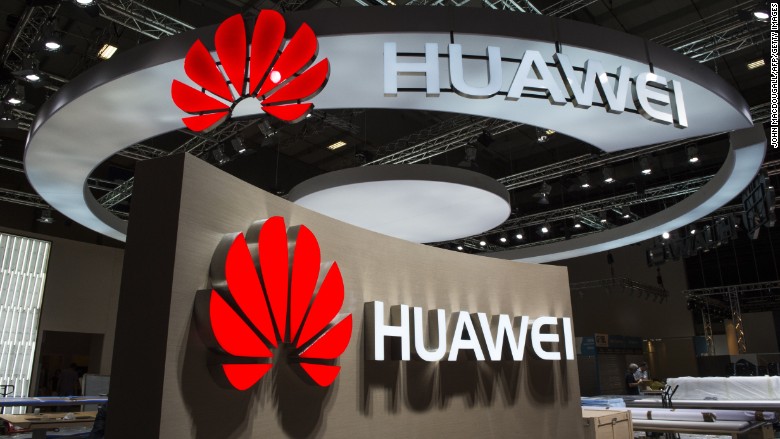Huawei- AT&T deal falls through
January 12, 2018 | Expert Insights

According to reports, the deal between China’s Huawei Technologies and US carrier AT&T has fallen through amid concerns over security. The two companies had decided to come together to sell Huawei’s smartphones in the United States.
This will not only be a blow to the Chinese company’s global ambitions but also could potential sour US-Sino ties.
Background
Huawei Technologies is a Chinese multinational networking and telecommunications equipment and services company headquartered in Shenzhen, Guangdong. It is the largest telecommunications equipment manufacturer in the world, having overtaken Ericsson in 2012.
AT&T Inc. is an American multinational conglomerate holding company headquartered at Whitacre Tower in downtown Dallas, Texas. AT&T is the world's largest telecommunications company. AT&T is also the second largest provider of mobile telephone services and the largest provider of fixed telephone services in the United States. The company provides broadband subscription television services through Uverse Tv and DirecTV satellite television. Combined with AT&T's legacy U-verse service, this also makes AT&T the largest paid television operator. AT&T is the second-largest company in Texas, behind ExxonMobil. It is also the 11th largest company in the world.
In 2012, the House Intelligence Committee in the US released a report that urged US telecoms companies not to do business with Huawei. The report also warned companies against Shenzhen-based firm, ZTE. The report stated that these companies that could threaten US security.
Analysis
According to reports, the deal between China’s Huawei Technologies and US carrier AT&T has fallen through amid concerns over security. The two companies had decided to come together to sell Huawei’s smartphones in the United States.
It has been revealed that the deal did not go through at the 11th hour as US Senators and House Intelligence Committee sent across a letter to AT&T urging against the deal. The letter to FCC Chairman Ajit Pai, which was signed by 18 lawmakers, noted concerns about Chinese companies in the U.S. telecommunications industry. In the letter the committee noted that there were concerns “about Chinese espionage in general, and Huawei’s role in that espionage in particular.”
According to Huawei, units of Mate 10 Pro, which is its flagship product, will now be sold only through open channels. In a statement the company noted, “The U.S. market presents unique challenges for Huawei, and while the HUAWEI Mate 10 Pro will not be sold by U.S. carriers, we remain committed to this market now and in the future.” Mate 10 Pro was Huawei’s challenger to the Apple iPhone.
He Weiwen, a former business counsellor at the Chinese consulate in New York, said the failure of the Huawei deal reflected heightened worries in the United States about Chinese investment.
“Investment cooperation between China and the US will be squeezed,” He said. “The US is very worried about the impact in the US from the growth of China’s hi-tech industry. It is worried that Chinese companies will transfer US technology through mergers and acquisitions. “China should contemplate countermeasures [if Washington takes punitive action against China],” he said, adding that Chinese companies should also change their investment strategies.
Paul Haswell, tech-focused partner at international law firm Pinsent Masons said, ““America’s concerns as to the security of Huawei’s products, whether valid or not, have not gone away and are likely intensifying in the current political climate. That said, given the restrictions that US firms face when doing business in China and the potential impact of China’s cybersecurity law on foreign firms in China, there’s little hope of any improvement in the situation. I expect things to get significantly worse as the US and China markets – not just the tech markets – become more polarized.”
The latest development comes just days after US blocked the sale of money-transfer service Moneygram to Ant Financial, an affiliate of Chinese e-commerce giant Alibaba. The sale had been worth $1.2 billion.
Assessment
Our assessment is that the deal falling through is yet one more indicator that ties between US and China are presently tense. US President Donald Trump has often spoken against “unequal” trade practices in China. United States is perhaps also wary of China continuing to rise as a formidable global power. Other sales that are currently threatened by the political climate include the China Oceanwide Holdings Group's $2.7 billion purchase of US life insurer Genworth Financial and the acquisition of US mobile marketing firm AppLovin by Orient Hontai Capital's $1.4 billion.








Comments